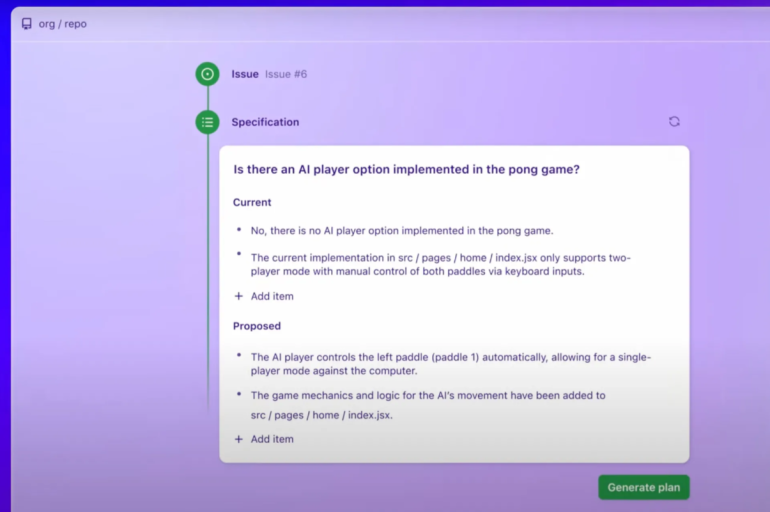- GitHub introduces Copilot Workspace, an AI-powered service aimed at streamlining project initiation.
- Copilot Workspace assists developers from the outset, offering tailored suggestions and step-by-step guidance.
- Currently, in technical preview, Copilot Workspace will integrate seamlessly into the GitHub Copilot platform upon official release.
- Users can articulate project objectives to Copilot Workspace via prompts and refine suggestions as needed.
- Copilot Workspace enhances efficiency by reducing time spent deciphering code and documentation.
- Jonathan Carter highlights Copilot Workspace’s proficiency in navigating legacy codebases.
- GitHub Copilot remains a benchmark for AI-driven code generation and completion.
Main AI News:
4GitHub’s Copilot, the pioneering code completion platform fueled by GPT-4, is now poised to accompany developers right from the inception of their projects. In a bid to streamline the initial phases of development, GitHub has unveiled Copilot Workspace, a groundbreaking service aimed at reducing the time engineers typically spend deciphering code and plotting the course for a new venture. While currently in technical preview and available to a select waitlist of developers, it is slated for seamless integration into the broader GitHub Copilot platform upon its official release.
According to a recent blog post by GitHub, Copilot Workspace will seamlessly embed itself within GitHub repositories or libraries. Developers will have the ability to articulate their project objectives to Copilot Workspace via prompts. In response, Copilot Workspace will proffer tailored suggestions on project initiation, presenting users with a structured, step-by-step approach. Furthermore, users retain the flexibility to refine these suggestions to align with their specific requirements. Once satisfied, they can execute the code, leveraging Copilot’s assistance, if needed, to swiftly propel the project forward.
Jonathan Carter, Head of GitHub Next, emphasized to The Verge the pivotal role Copilot Workspace plays in expediting project kickoffs. While acknowledging Copilot’s utility in the midst of ongoing projects, Carter underscores its transformative impact at the project’s genesis. By integrating Copilot at the outset, developers can devote more time to actual coding, minimizing the need for extensive code and documentation perusal.
Carter highlights Copilot Workspace’s proficiency in navigating legacy codebases, surpassing human capabilities in deciphering intricate code structures. With its adept scanning capabilities, Copilot Workspace swiftly comprehends the nuances of existing codebases, thereby expediting the review process.
Ever since GitHub introduced Copilot, it has emerged as a benchmark for AI-driven code generation and completion. As other players in the tech arena follow suit, releasing their iterations of large language models tailored for coding tasks, Copilot remains unparalleled in its versatility and efficacy.
Conclusion:
The introduction of GitHub Copilot Workspace signifies a significant advancement in AI integration within the software development lifecycle. By streamlining project initiation and enhancing efficiency, GitHub is poised to further solidify its position as a leader in AI-powered development tools. This move underscores the increasing reliance on AI to optimize workflows and drive innovation in the market.

